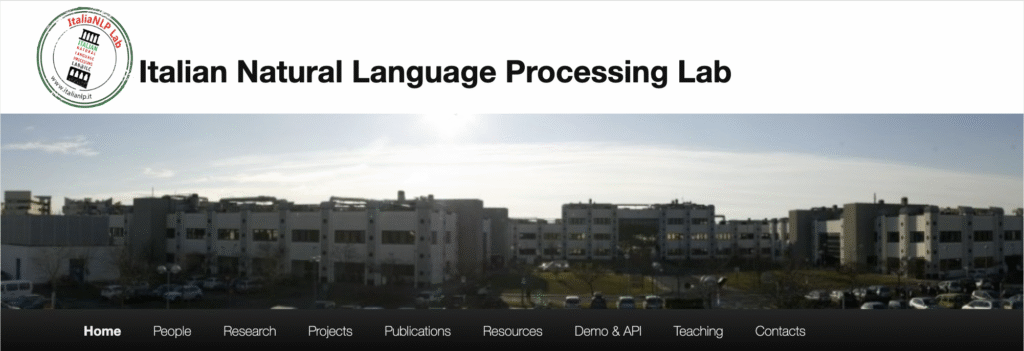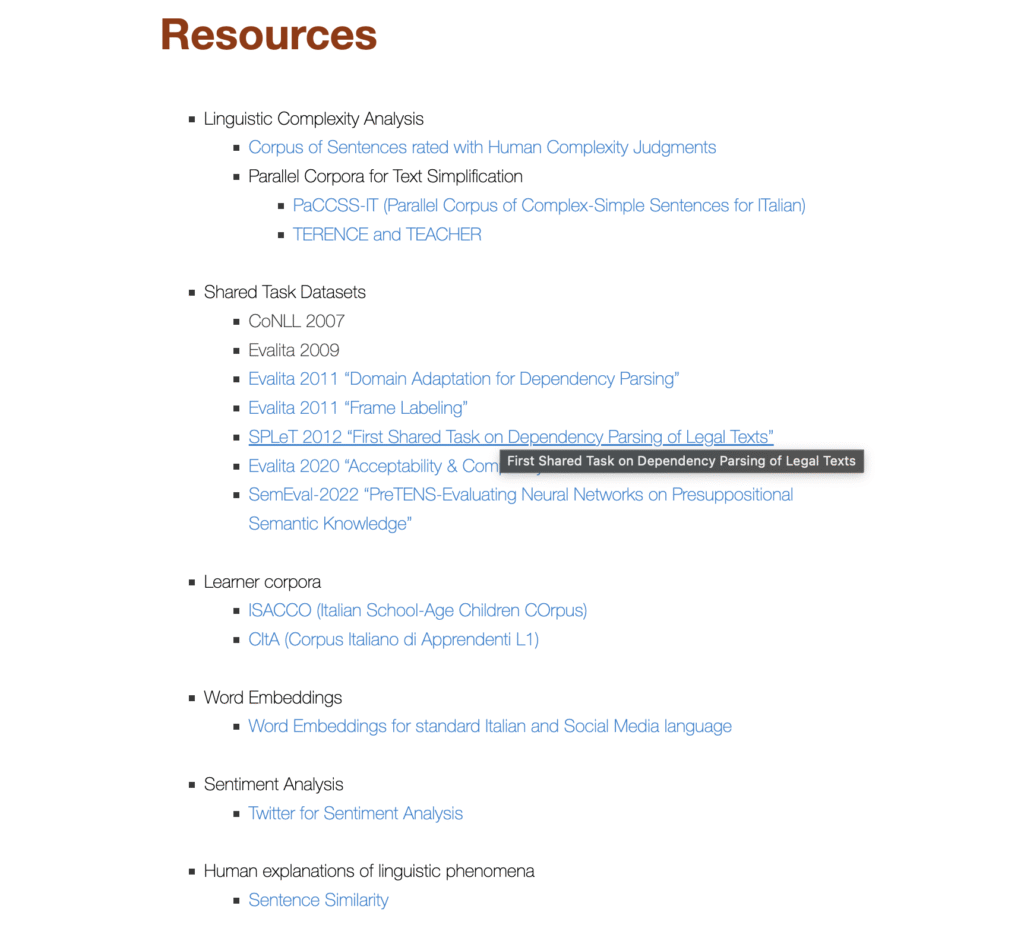
In a world increasingly mediated by algorithms, language remains our most powerful and most complex tool. At the intersection of linguistics, computer science, and artificial intelligence, the ItalianLP lab stands out as a center of excellence dedicated to understanding, modeling, and transforming human language into computable knowledge.
Based at the Istituto di Linguistica Computazionale “Antonio Zampolli” (ILC-CNR), ItalianLP brings together researchers, linguists, and computer scientists with a shared goal: to develop natural language processing (NLP) technologies with a special focus on the Italian language. But its impact goes far beyond linguistic borders—it touches on fundamental questions about how we communicate, learn, and interact with machines.
The lab works on multiple fronts: from building probabilistic models for syntactic analysis to developing information extraction systems in specialized domains such as healthcare, education, and e-government. Its projects combine linguistic rigor with technological innovation, resulting in tools that not only process text but understand it in depth.

One of ItalianLP’s key strengths is its hybrid approach: blending traditional linguistic knowledge with the latest machine learning techniques. This fusion enables the creation of more accurate models, sensitive to the nuances of language and capable of handling real-world challenges such as ambiguity, irony, regional variation, and semantic change.
Among the lab’s many contributions are lexicons, annotated corpora, morphosyntactic analysis tools, and readability assessment systems. These resources are essential not only for researchers but also for developers, educators, and professionals working with large volumes of text.
The READ-IT project, for example, is one of the first advanced readability assessment tools for Italian. It combines traditional textual features with lexical and syntactic information, allowing users to evaluate the complexity of entire documents or individual sentences—an essential capability for education, accessibility, and institutional communication.

Another highlight is the lab’s involvement in the FAIR – Future Artificial Intelligence Research project, which aims to develop trustworthy, ethical, and human-centered AI. Within this initiative, ItalianLP leads efforts in automatic language generation and textual quality evaluation, with special attention to social and ethical aspects such as bias and clarity.
These efforts show that ItalianLP is not just interested in making machines understand language—but in ensuring that this understanding is fair, inclusive, and socially beneficial. In times of misinformation and information overload, this mission is more urgent than ever.
Language, after all, is not just a means of communication. It is a mirror of culture, a tool of power, and a field of symbolic struggle. By modeling language, we also model how we think, feel, and relate to one another. ItalianLP’s work, therefore, is also a form of digital citizenship.
Beyond research, the lab is committed to training new talent, offering courses, workshops, and collaboration opportunities with universities and industry. This educational dimension is essential to prepare a new generation of professionals capable of addressing the ethical, technical, and social challenges of linguistic AI.

The ItalianLP website functions as a true knowledge hub. There, users can access linguistic resources, APIs, interactive demos, and scientific publications all with a commitment to open, accessible, and applicable science.
In a global landscape dominated by English-language models, ItalianLP also plays a strategic role: ensuring that Italian—and by extension, other underrepresented languages—has a voice in the digital revolution. This means creating models trained on local data, sensitive to the cultural and linguistic specificities of Italy.
This commitment to linguistic diversity is essential for building truly inclusive AI. Because, ultimately, there is no such thing as a neutral language—and an AI that ignores this reality risks reproducing inequalities and silencing voices.
ItalianLP reminds us that language is alive, mutable, and deeply human. And that, in translating it into the world of machines, we must not lose sight of its richness, beauty, and complexity. Technology can be a powerful ally—but only if guided by ethical principles and a deep respect for language as an expression of life.
#datavizmagic #datavizshow #datastorytelling #datavisualization #resources

